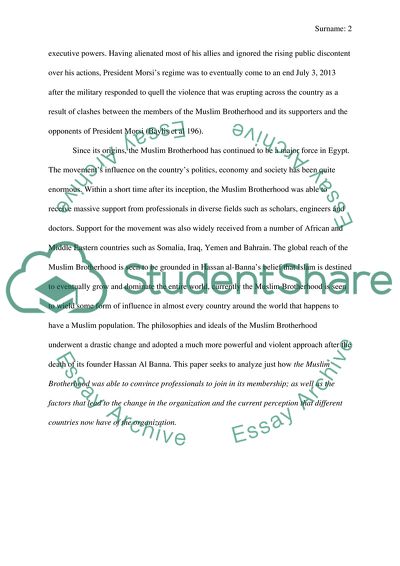Cite this document
(The Muslim Brotherhood Research Paper Example | Topics and Well Written Essays - 4250 words, n.d.)
The Muslim Brotherhood Research Paper Example | Topics and Well Written Essays - 4250 words. https://studentshare.org/history/1815972-the-muslim-brotherhood
The Muslim Brotherhood Research Paper Example | Topics and Well Written Essays - 4250 words. https://studentshare.org/history/1815972-the-muslim-brotherhood
(The Muslim Brotherhood Research Paper Example | Topics and Well Written Essays - 4250 Words)
The Muslim Brotherhood Research Paper Example | Topics and Well Written Essays - 4250 Words. https://studentshare.org/history/1815972-the-muslim-brotherhood.
The Muslim Brotherhood Research Paper Example | Topics and Well Written Essays - 4250 Words. https://studentshare.org/history/1815972-the-muslim-brotherhood.
“The Muslim Brotherhood Research Paper Example | Topics and Well Written Essays - 4250 Words”. https://studentshare.org/history/1815972-the-muslim-brotherhood.


